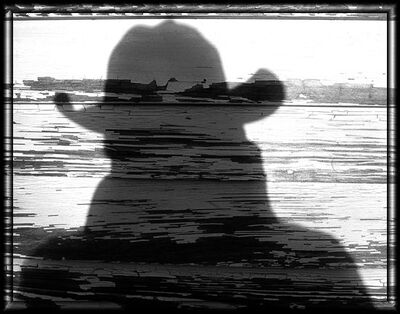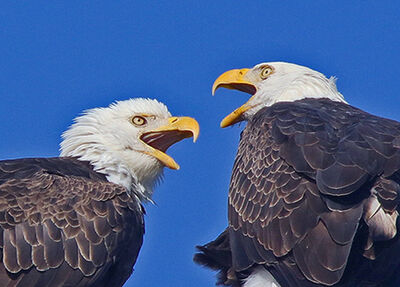Capturing Native Florida
Mar 1, 2021 10:19:35 #
Mar 1, 2021 10:29:04 #
EdwardMcC wrote:
I often wonder, being in Florida. What was it like for the many species of birds seen on the beaches, wading along the shore, and flying endlessly over us; before humanity arrived? Given the course of a growing population Florida is experiencing, I am concerned and interested in how many species will adapt and survive. I love photographing birds and wonder how much longer I will have that pleasure? Open.
Welcome to UHH.
I share your concerns about the future. Before humans, or at least before the invasion of the Americas by Europeans, Florida must have been a wondrous place. I don’t know how much longer we will continue to have what we now have. A major portion of the Everglades have been lost to construction and agriculture. Red tide and blue/green algae poison the water and kill off water life and birds. Theme parks have ripped out huge sections of the interior. Sea level rise threatens costal cities. I think nature will prevail and long after we humans kill ourselves off, reclaim the land.
Mar 1, 2021 10:31:27 #
selmslie wrote:
That’s in North America (which includes Mexico) but not as much in Florida.
Bird populations are down 3 BILLION in the US and Canada over the last 50 years.
If that was happening to the human population with no end in sight.
You'd be in a bunker by now...in a full-blown panic.
For good reason btw...
Mar 1, 2021 10:33:49 #
billnikon wrote:
The bird population in Florida is under attack by greedy home/apartment/business/industry developers.
City, county, and state governments publicly deplore it but taxes from these developments behind the public view easily swing those decisions towards the developers.
It is very sad to watch it happen before my very photographic eyes.
I have personally seen about a 45% drop in birds in the last 6 years.
City, county, and state governments publicly deplore it but taxes from these developments behind the public view easily swing those decisions towards the developers.
It is very sad to watch it happen before my very photographic eyes.
I have personally seen about a 45% drop in birds in the last 6 years.
Don't you have a home in Florida? If so would you give it up for the bird's sake?
---
Mar 1, 2021 10:53:29 #
EdwardMcC wrote:
I often wonder, being in Florida. What was it like for the many species of birds seen on the beaches, wading along the shore, and flying endlessly over us; before humanity arrived? Given the course of a growing population Florida is experiencing, I am concerned and interested in how many species will adapt and survive. I love photographing birds and wonder how much longer I will have that pleasure? Open.
Welcome to UHH.
I share your concerns about the future. Get involved in your area to support birds. Stan
Mar 1, 2021 11:11:54 #
Canisdirus wrote:
Bird populations are down 3 BILLION in the US and Canada over the last 50 years.
If that was happening to the human population with no end in sight.
You'd be in a bunker by now...in a full-blown panic.
For good reason btw...
If that was happening to the human population with no end in sight.
You'd be in a bunker by now...in a full-blown panic.
For good reason btw...
That means that about 7 billion survive.
But we are talking about Florida. Florida's habitat is unique for North America. Although the population is down it's not as bad as it is in other places.
And if that was happening to the human population it would provide a great benefit to the birds and all other animals.
Mar 1, 2021 12:19:55 #
selmslie wrote:
That means that about 7 billion survive.
But we are talking about Florida. Florida's habitat is unique for North America. Although the population is down it's not as bad as it is in other places.
And if that was happening to the human population it would provide a great benefit to the birds and all other animals.
But we are talking about Florida. Florida's habitat is unique for North America. Although the population is down it's not as bad as it is in other places.
And if that was happening to the human population it would provide a great benefit to the birds and all other animals.
Says who?
The study is nation wide...Florida not part of the US?
It only looks like it's okay because of the winter and summer fly-throughs.
It only looks okay...if you aren't paying attention.
I remember Florida back in the 60's...there is a MONUMENTAL difference across the board.
Mar 1, 2021 12:30:01 #
Canisdirus wrote:
I consider 29% in 50 years ... WAY DOWN.
MY figures say more like 50% in the last 2 years ! - and that may be conservative


Mar 1, 2021 13:23:16 #
Canisdirus wrote:
Says who?
The study is nation wide...Florida not part of the US? ...
The study is nation wide...Florida not part of the US? ...
Says Audubon. And no, Florida is not typical of the US or the rest of North America.
Take a look at the Audubon article at the link I provided earlier. Under the topic Habitat Breakdown they list the types of environments most affected. The first eight are not typical of Florida but the last two are:
"9. Coasts: Human activity—like driving on the beach, letting dogs and kids run loose on the beach, bringing gull-attracting food to the beach—can disturb birds attempting to incubate eggs and raise chicks. Climate-related factors pose a threat as well, as sea-level rise encroaches on nesting grounds and an uptick in tropical storms washes out beaches. The study estimates about 6 million birds have been lost in this habitat since 1970."
Six million birds is a drop in the bucket.
Then the next one:
"10. Wetlands: Some wetland species, waterfowl in particular, have seen population gains over the last few decades due in large part to political action and careful land management and restoration. ... The study estimates that this habitat has gained 20 million birds since 1970, an increase by more than 10 percent.
That more than made up for the loss in coastal populations.
If you are not seeing birds you are looking in the wrong place.
Mar 1, 2021 13:31:57 #
Canisdirus wrote:
Bird populations are down 3 BILLION in the US and Canada over the last 50 years.
It took over 200,000,000 years for the earth's human population to reach 1 billion. It took just 200 more years to reach 8 billion and growing.
So, are we really going to save wildlife, stop building new homes, or actually control global warming?
We are the problem who created all these other issues. Even todays pandemic isn't enough to substantially slow things down.
---
Mar 1, 2021 13:44:36 #
Mar 1, 2021 18:35:15 #
a6k
Loc: Detroit & Sanibel
This thread has become political and thus I suggest it should be moved. It had little to do with photography at the start and now it has nothing to do with photography.
Assertions about cause and effect, global warming, sea levels, how much has changed, where it has changed, whom to believe and such are hotly debated elsewhere but since arguing about them here is out of place I am not doing that.
Assertions about cause and effect, global warming, sea levels, how much has changed, where it has changed, whom to believe and such are hotly debated elsewhere but since arguing about them here is out of place I am not doing that.
Mar 1, 2021 18:36:19 #
EdwardMcC wrote:
I often wonder, being in Florida. What was it like for the many species of birds seen on the beaches, wading along the shore, and flying endlessly over us; before humanity arrived? Given the course of a growing population Florida is experiencing, I am concerned and interested in how many species will adapt and survive. I love photographing birds and wonder how much longer I will have that pleasure? Open.
It will be interesting to see.
Mar 1, 2021 23:10:10 #
selmslie wrote:
Says Audubon. And no, Florida is not typical of... (show quote)
Sorry if I care more than you do...but I do.
I have lived in Florida all of my life and my career was as an environmentalist.
Across the board...Florida has been diminished at an alarming rate...
With no end in sight.
Looking in the wrong places?
I have been where few have gone...and have gone where noobs go as well.
Mar 1, 2021 23:36:50 #
Canisdirus wrote:
Sorry if I care more than you do...but I do.
I have lived in Florida all of my life and my career was as an environmentalist.
Across the board...Florida has been diminished at an alarming rate...
With no end in sight.
Looking in the wrong places?
I have been where few have gone...and have gone where noobs go as well.
I have lived in Florida all of my life and my career was as an environmentalist.
Across the board...Florida has been diminished at an alarming rate...
With no end in sight.
Looking in the wrong places?
I have been where few have gone...and have gone where noobs go as well.
I’m sorry if you feel that the sky is falling on you but you are not the only long time Florida resident here.
We have lived mostly in the Miami area since the early 1950s and in northern Florida since retiring. We are aware of the dramatic growth but we are not alarmists. We know our way around. When we want to find wildlife we know where to look.
If you want to reply, then register here. Registration is free and your account is created instantly, so you can post right away.








